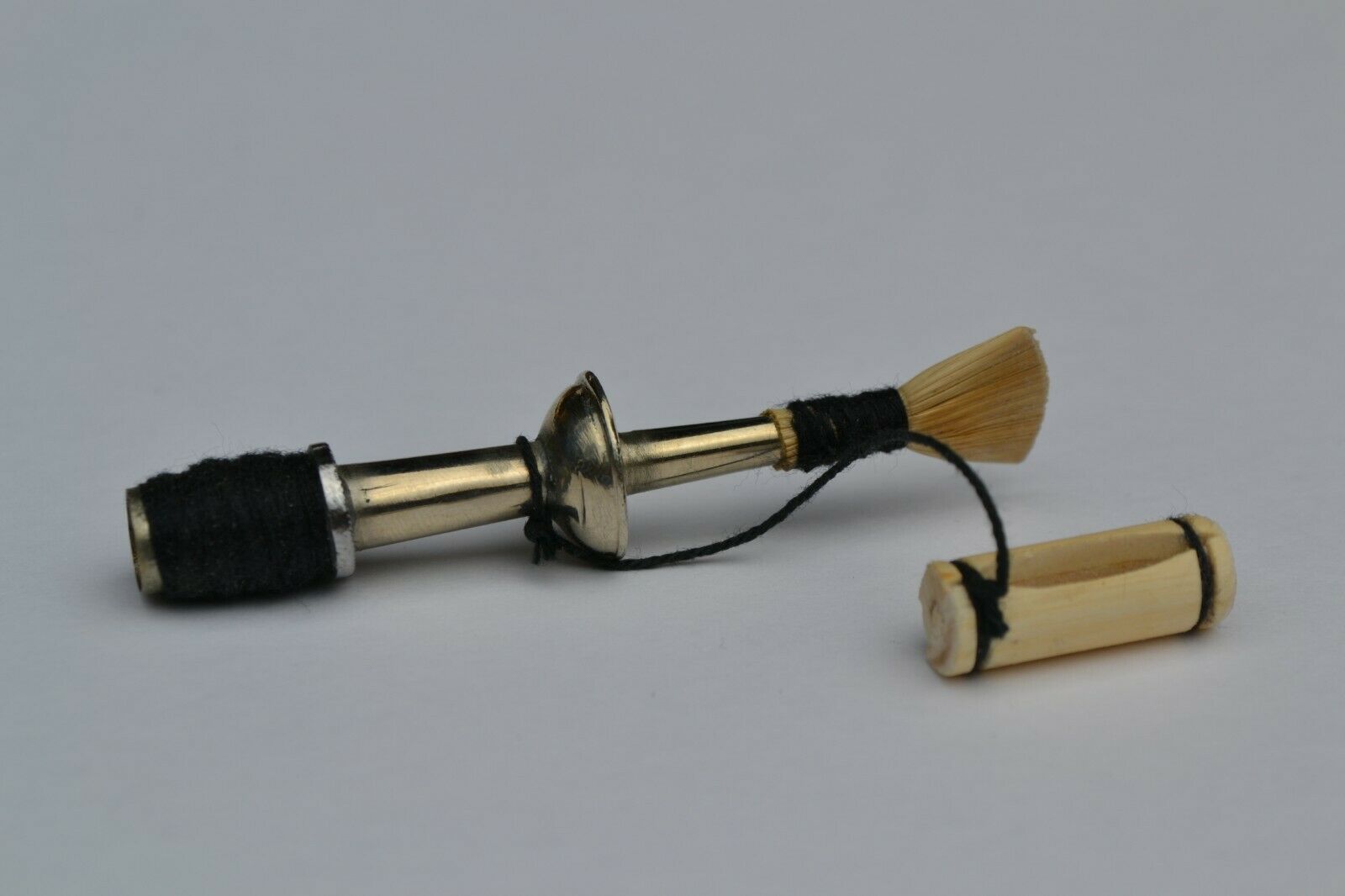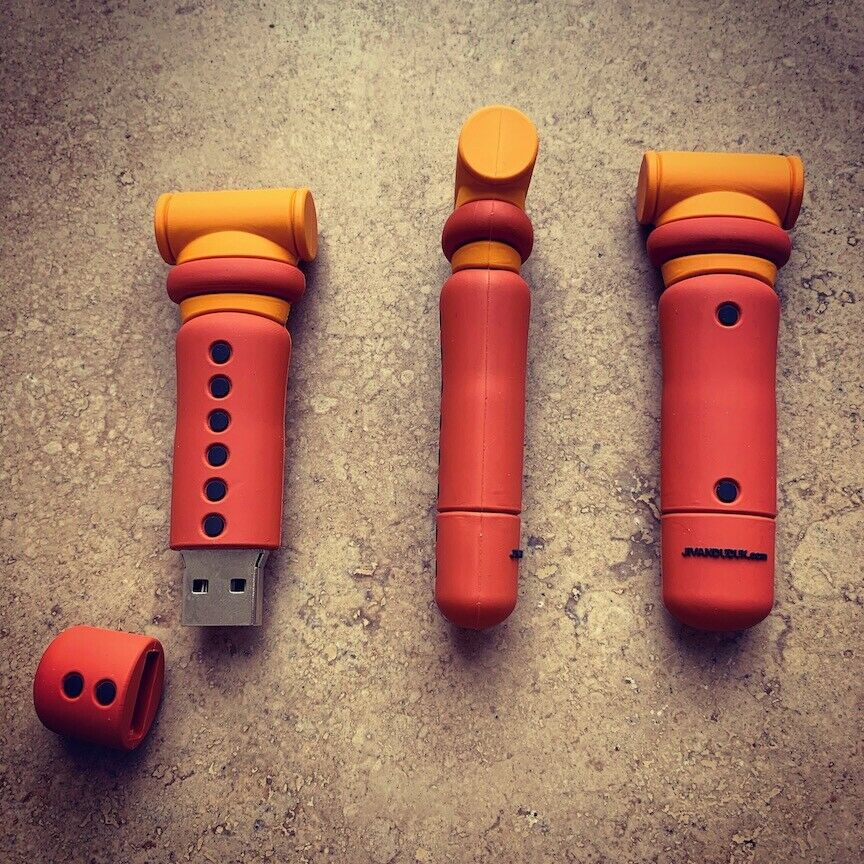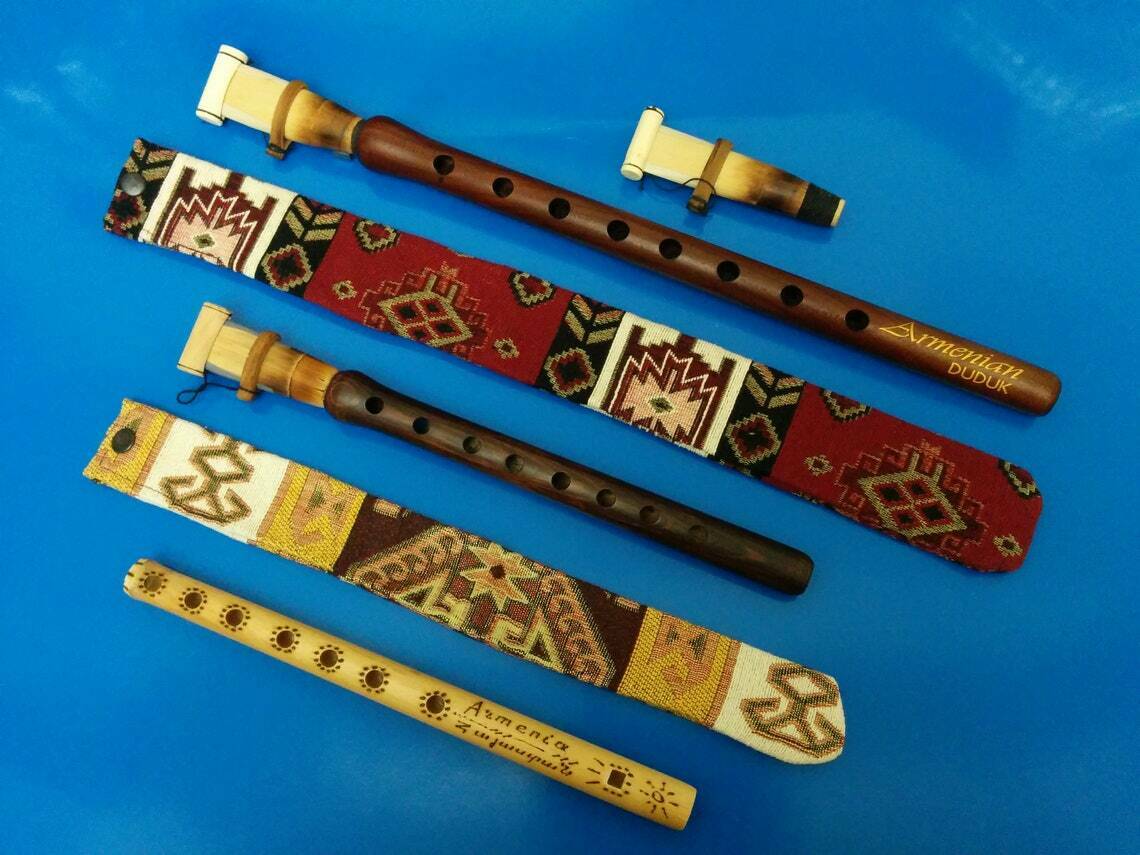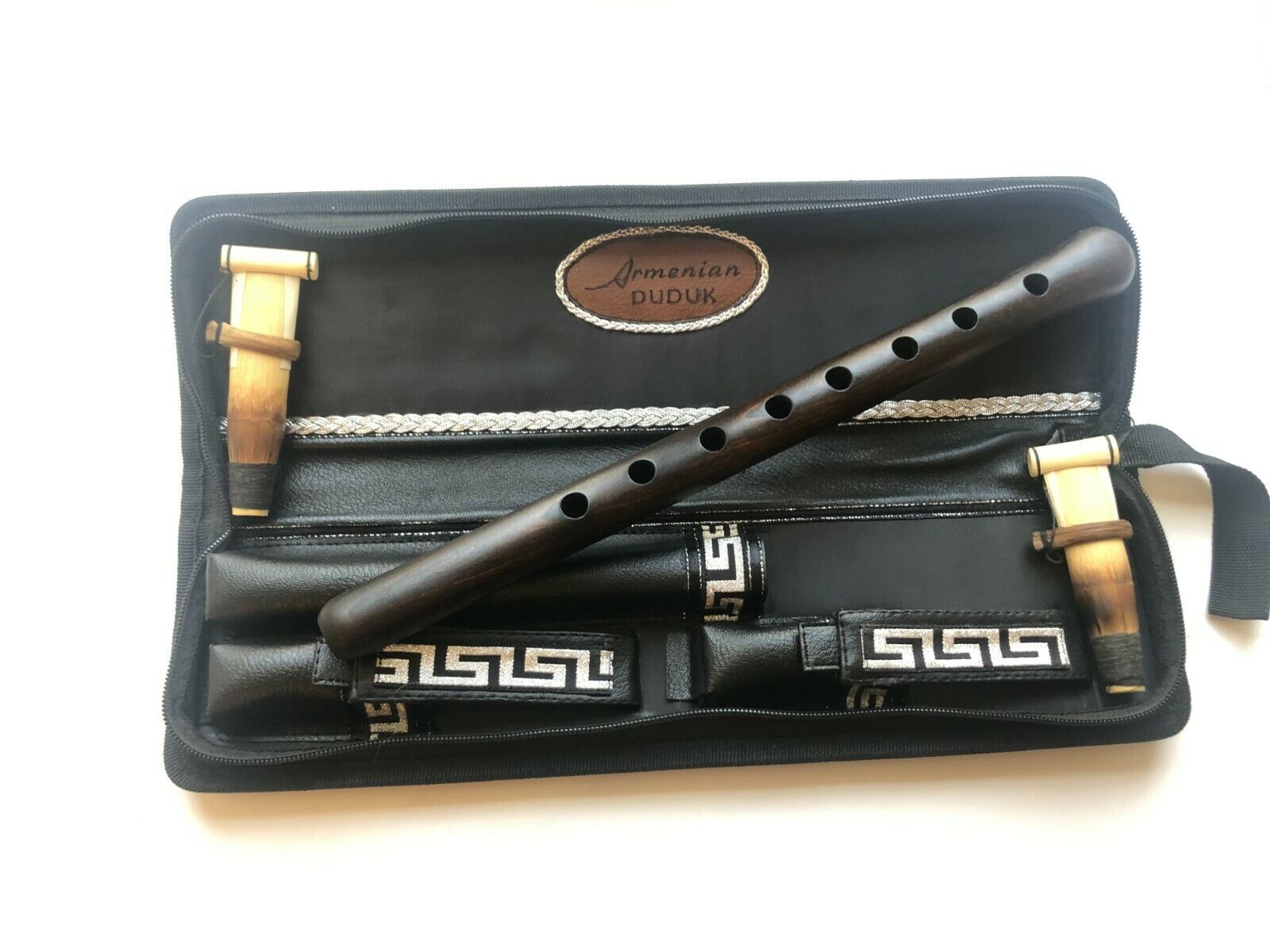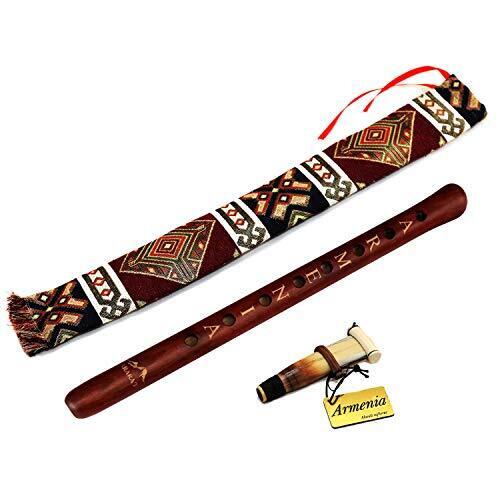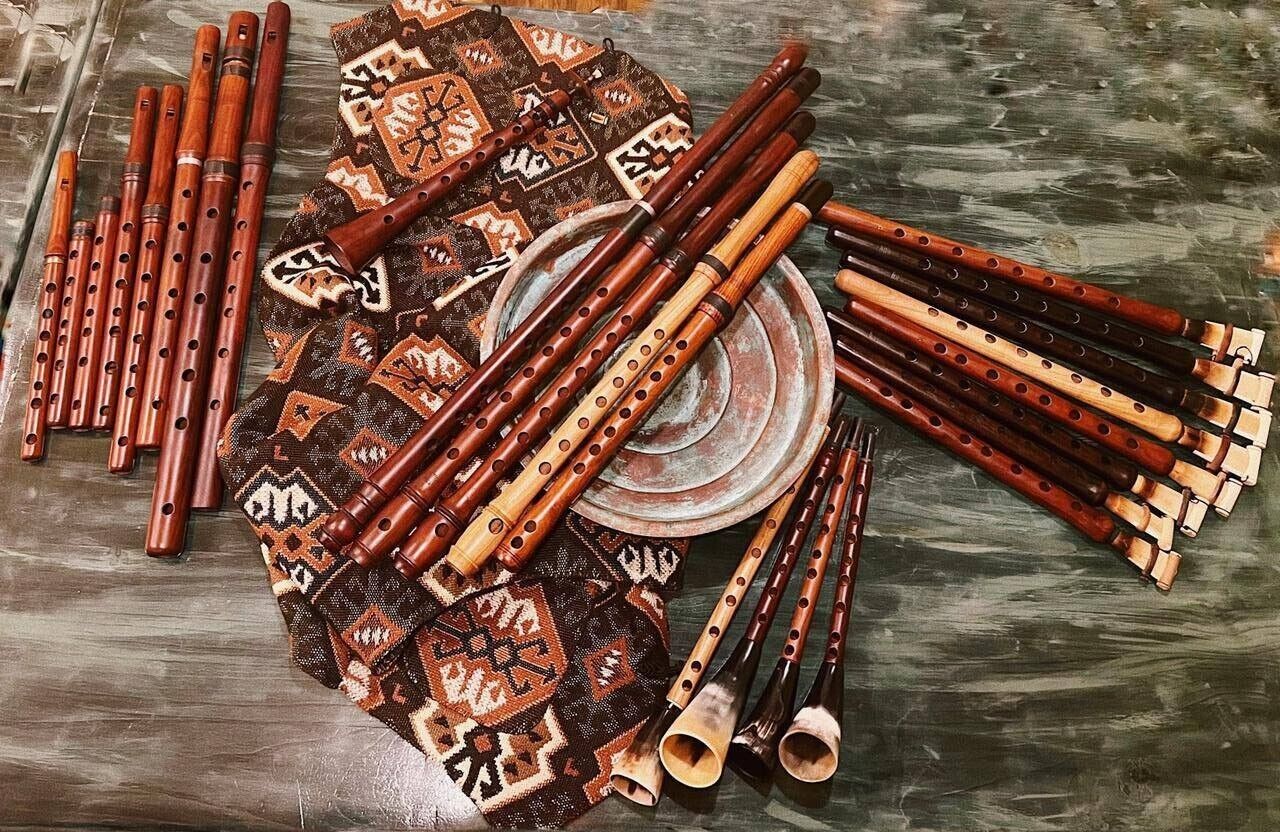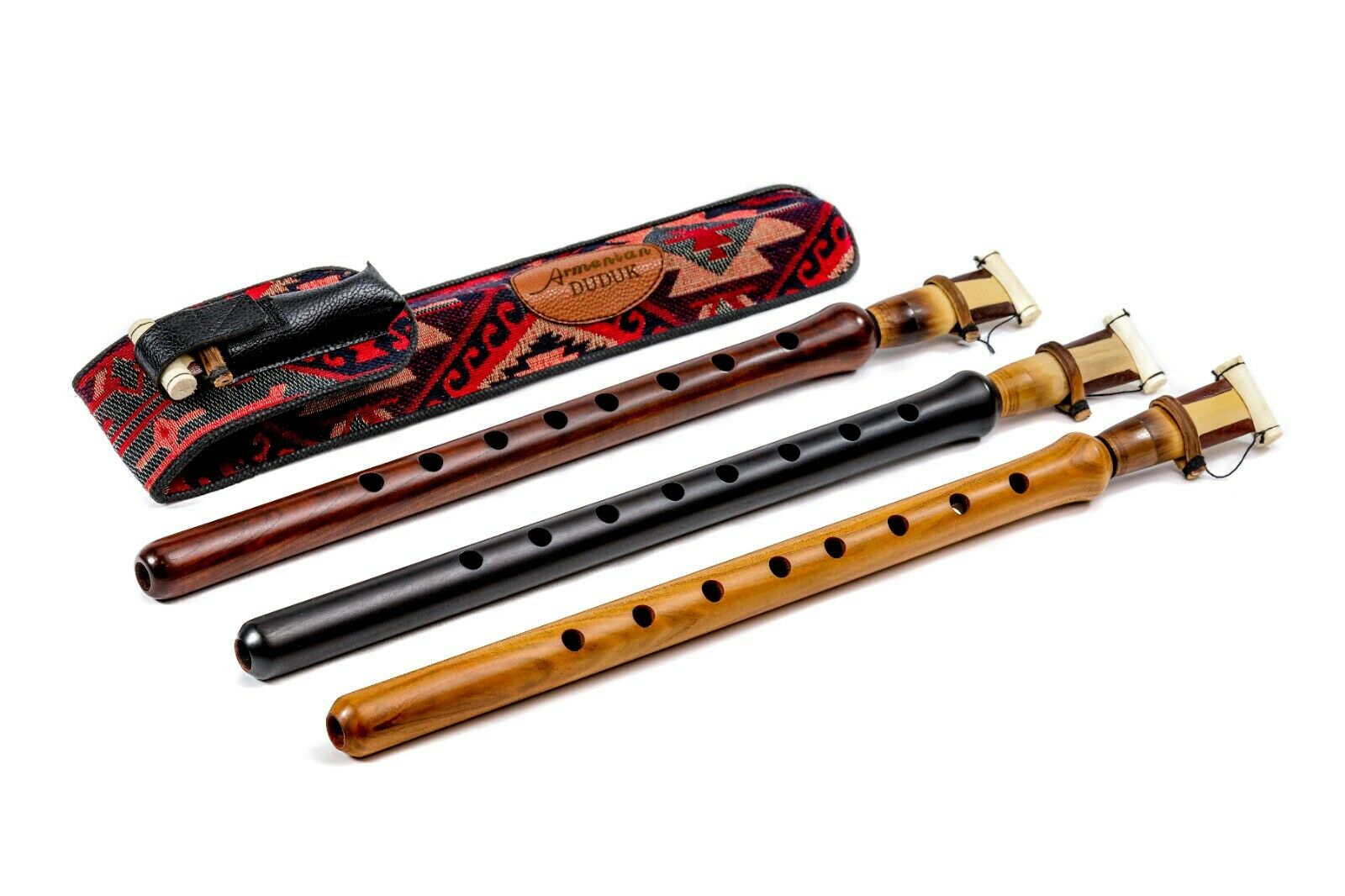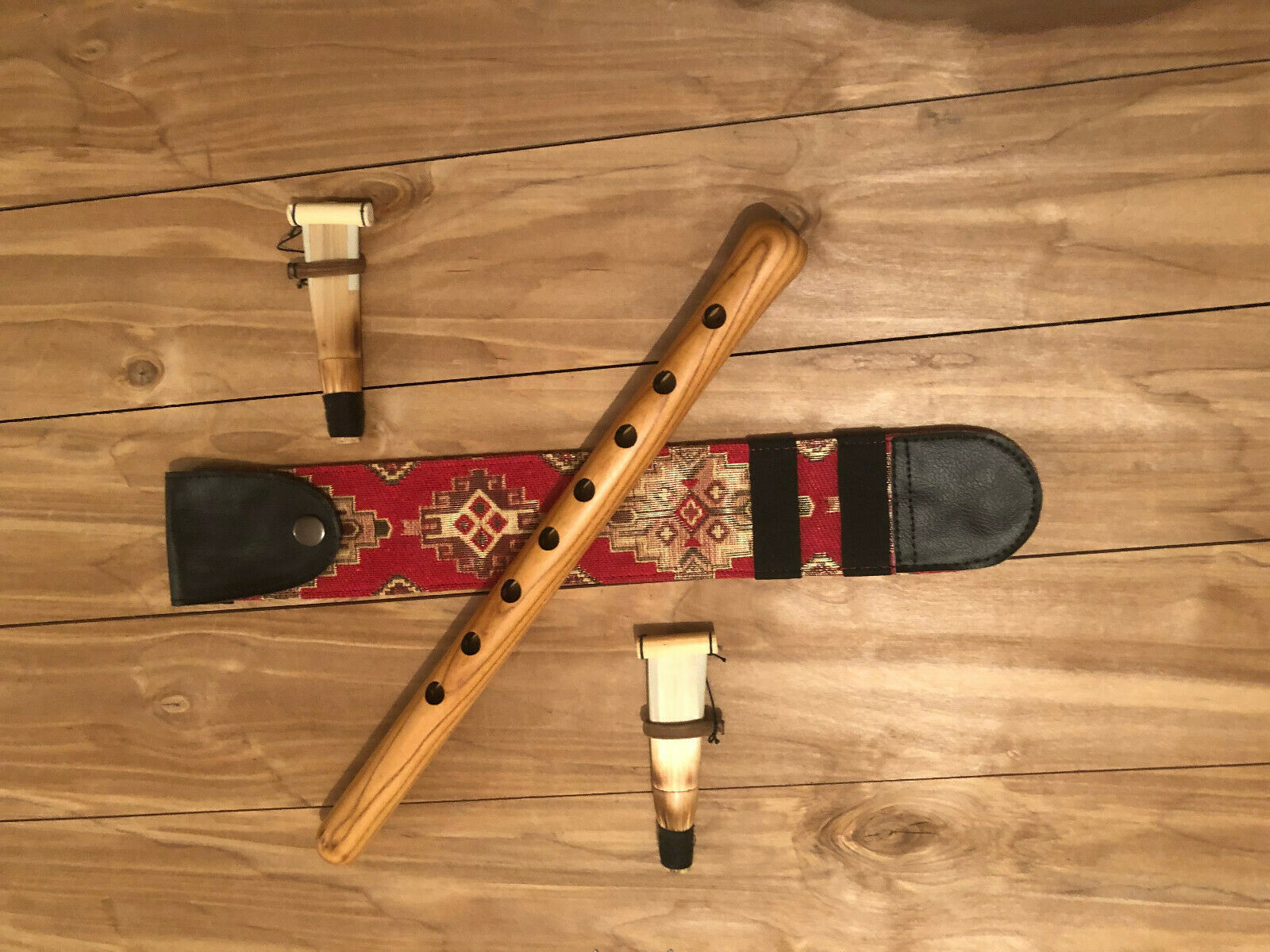-40%
Professional pipe for Armenian ZURNA ( khamish )
$ 18.95
- Description
- Size Guide
Description
Many varieties of zurna have found very wide distribution among the peoples of the Middle East, the Caucasus and China. In archeological excavations, in one of the most ancient places of human residence, on the territory of Mingechaur, 4 specimens of zurna made of deer horns were found. It is believed that these tools were made 3 thousand years ago.Zurna is mainly milled from apricot, walnut or mulberry wood. The tool barrel, having a diameter of 20 mm at the upper end, expands down to 60-65 mm in diameter. The total length of the instrument is 302–317 mm. On the front side of the barrel, 7 holes are drilled, and on the back - one. A sleeve (“Masha”) is inserted into the upper end of the trunk; it has a length of 120 mm and is cut from wild willow, walnut or apricot.
The purpose of the sleeve is to adjust the plate setting. The mouthpiece, made in a special way from reed, which grew in a dry place, has a length of 7-10 mm. To extract sound from the instrument, the performer, drawing air into the oral cavity, blows it out accordingly through this mouthpiece.
The range of zurna encompasses sounds from a “small B” flat octave to “to” the third octave; with the skill of the performer, this range can be extended to several more sounds. These sounds in the environment of the performers are referred to as "sephir ceslar". Zurna is mainly used to perform samples of folk music during folk festivals in the open air. Zurna, as a rule, is a part of wind instrument ensembles. As a solo instrument, zurna in ensembles or orchestras is used to perform certain dance melodies, including jangs and other musical samples.
PAYMENT
PayPal is our foreground method of making payments. If You have any questions concerning the payments, please, contact us via Ebay Messaging center.



